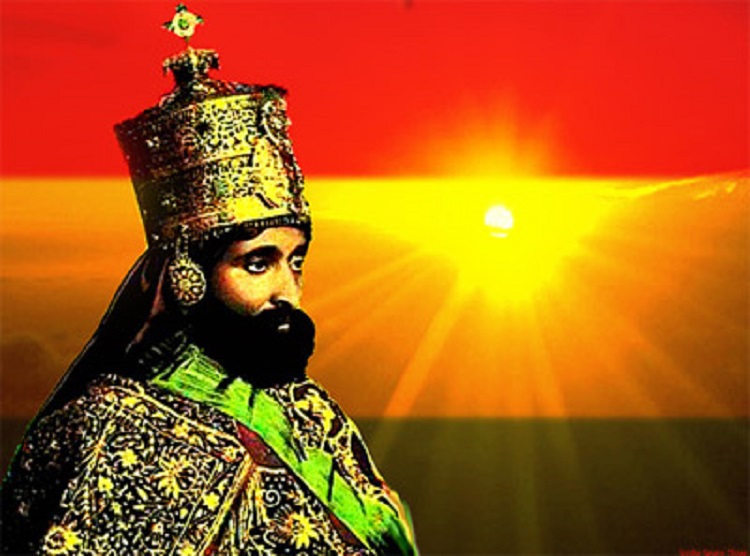
The Sunday News

Nkosilesisa Ncube, Sunday Life Reporter
Broken down to its simplest form, Jah Rastafarian means, “Created of God”. Jah means God, Rasta means Head and Faria means Created. From this, any person created by God-any god can be considered a Jah Rastafarian.
However, Rastafarian culture goes deeper than that. The culture developed in the mid twentieth century in Jamaica amongst the black working class after the appointment of Haile Selassie I into power as Ethiopian emperor. Loyal followers of Selassie formed the movement as a social protest against the middle class and the mostly white leaders who ruled the islands at the time. To them, Selassie represented emancipation of the black as he was the first black to have a seat in the League of Nations 1936 when he was still the only independent non-European monarch in Africa.
Although many types of Rastafarians have emerged since then, they still share some of the most basic beliefs. Rastafarian religion borrows a lot from Christianity. They believe in a God that created the universe (Jah) and gave his son (Yeshua) as a sacrifice for his people. Rastafari accept most parts of the Bible, although some believe its meaning has been clouded by certain systems. Some Rastafari identify strongly with one of three “Mansions of Rastafari”— Nyahbinghi, the Bobo Ashanti, and the Twelve Tribes of Israel. Some Rastafari, however, choose not to align themselves with any particular denominations.
The devout Rastafari’s diet is based on Ital, meaning vital. Rastafarians do not consume food that may harm their livelihood.
They eat food that promotes longevity of life. As a result, Rastafari diet consists mainly of natural foods. Radical Rastafari do not eat processed foods, and the most extreme even refrain from consuming salt. Vegetarianism is also observed by some Rastafari. Although excessive consumption of alcohol is not considered “ital”, Rastafari can occasionally dabble in alcohol so long as it does not cloud the mind. They do or some, however, regularly smoke ganja which they view as a gateway to understanding. According to them, ganja opens up the mind and strengthens the connection between one and Jah.
The Rastafari colours; red, gold and green are the colours of the Ethiopian flag. This is how Rastafari pledge their allegiance to the Ethiopian state. Red signifies the blood of those who gave up their lives for the Rastafari cause, green stands for the vegetation in Ethiopia and gold the wealth in Africa. The lion of Judah is another recurring image on Rastafarian clothing.
Most but not all Rastafari wear their hair in dreadlocks. This is in accordance with the Nazarene law that says hair should be worn naturally. Traditionally, Rastafari women only wear skirts; pants are considered as disrespectful. Head wraps are a must for Rastafari women and on days when head wraps are not worn, a hat should be worn instead. Make-up may be worn but only in natural colours.
Notorious for having their dialect, Rastafarian view pure English as an imposed colonial language. Iyaric, locally known as Isiyaman is used as a counter to the English language. Iyaric borrows largely from the English language. Rastafari however, shy away from using the word “hello” in their greeting as part of that word spells the word “hell”. The most common greeting is the handshake with direct eye contact, and a warm smile. In most circumstances Rastafari do not swear and talk about intimate issues is generally frowned upon. Etiquette is important to Rastafarians. One has to wait until invited before using someone’s first name and friendships deepen, one may be asked to call another person by their nickname. Once a friendship has been established, women may hug and kiss on each cheek, starting with the right. Men often pat each other’s shoulder or arm during the greeting process or while conversing.
When it comes to marriage, Rastafari barely settle down with someone outside the Rastafari community. Although this does not apply to all Rastafari men, the preference for them is usually women who do not swear, do not consume alcohol and do not act vain. Once married, the Rastafarian wife – or empress as they are sometimes called- is to look after her husband or Kingman. The family structure is largely patriarchal and the system forbids contraception and abortion. The empress therefore has the major responsibility of bringing up the children and rearing them in the ways of the Bible until they grow to appreciate Rastafari by themselves. The empress should avoid friendships with adulterers, pagans and drug addicts.
Rastafari commemorative days come in two types. The first types are Reasoning ceremonies where they gather and discuss issues affecting them, be they political, social or philosophical. During these ceremonies ganja is smoked as it is believed to heighten feeling of belonging to that comunity. The second types of ceremonies are called Groundation ceremonies.
Groundation celebrations involve music, dance and prayer. They are also called Black Victory celebrations. Groundations may take place on Africa Day, Ethiopian Christmas and Ethiopian New Year.
Although these are the most basic traits of Rastafari culture, they may vary from one Rasta to another. As a geographically widespread people, Rastafari’s customs may differ slightly from one place to another.



